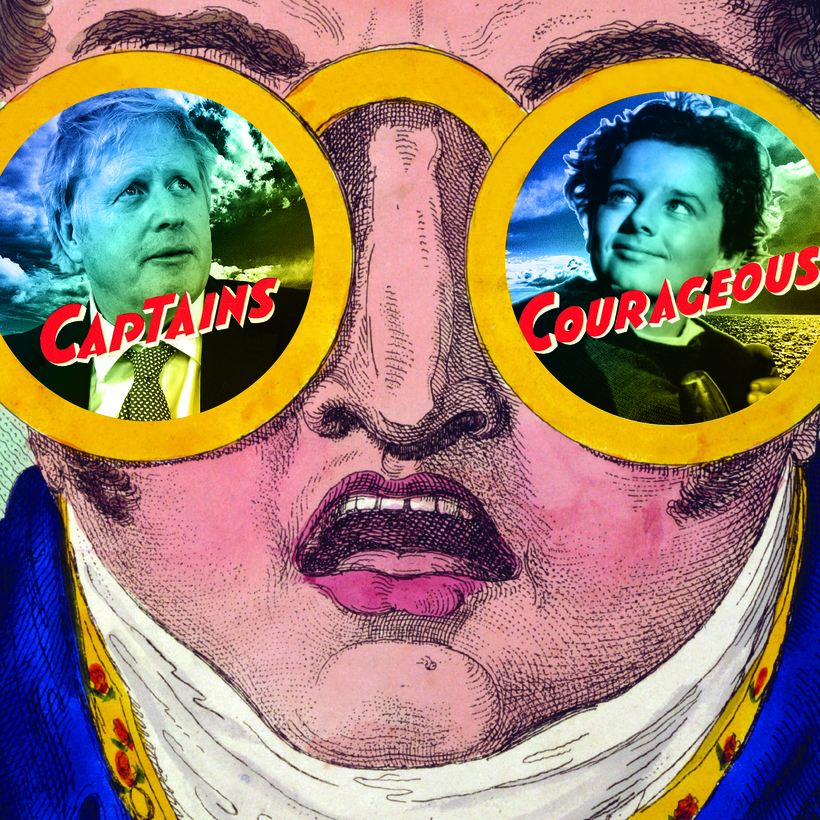You wouldn’t wish it on your worst enemy. Or should you?
Because horrible as the coronavirus is, it could be the lesson that some in society—mostly the rich and powerful—have needed for some time. Look at what happened to Boris Johnson. The privileged and overconfident British prime minister was still defiantly shaking hands with strangers and pooh-poohing the pandemic while most of his peers in Europe were ordering lockdowns. (Talk about taking Brexit too far.)
Then he got sick and came close to dying in the I.C.U.
Johnson’s brush with danger is the political version of Captains Courageous, the 1937 movie, based on a Rudyard Kipling story, about a spoiled, selfish child (played by Freddie Bartholomew) who falls overboard from an ocean liner and is rescued by a Portuguese fisherman (Spencer Tracy) and, learning from hardship, becomes a better person.
When he emerged from the hospital last Sunday, Johnson was wan, shaky, and full of never-before-seen humility and gratitude—he thanked his doctors, “several of them for some reason called Nick,” and in particular praised “Jenny from New Zealand” and “Luis from Portugal” for saving his life. Get him re-write: as it stands now, Brexit puts sharp limits on foreign laborers, including many caregivers who earn too little to qualify as skilled workers.
Johnson’s brush with danger is the political version of Captains Courageous, the 1937 movie, based on a Rudyard Kipling story, about a spoiled, selfish child.
Johnson, who during the election campaign famously refused to look at a photo of a sick child lying on the floor of a National Health Service hospital for lack of beds (Johnson irritably grabbed the reporter’s phone and shoved it into his own pocket), couldn’t stop praising the state-run health-care system. He called the N.H.S. “the beating heart” of Britain. “It is the best of this country,” Johnson said. “It is unconquerable.”
The list of other people who should be scared straight by the coronavirus is long, but let’s start with Jeff Bezos, the founder of Amazon, who this week fired two more employees who were reported to be seeking safer conditions—two weeks after the first Amazon warehouse worker died of the coronavirus, in Hawthorne, California.
Bezos pledged a $100 million donation to food banks—which sounds nice but turns out to be a little less than .08 percent of his wealth: since the pandemic began, Amazon stock has added about $24 billion more to his wallet, which is now worth about $138 billion.
My co-editor jokes about Billionaires Without Borders, who could rush in to save benighted hospitals or shore up faltering essential companies and even whole economies. If Bill Gates gave up 1/250th of his wealth, he could replace the U.S. contribution to the World Health Organization. Unless I heard wrong and Graydon meant Billionaires Without Boarders—it’s hard to tell on Zoom—it’s also true that the very rich are isolating in palatial mansions and far-flung ranches, without offering a bed to anyone except their live-in staff.
Ivanka Trump, meanwhile, once again proved she is her father’s daughter. The New York Times reported that she defied federal guidelines and flew with her family to a Trump country club in New Jersey for Passover—this after having posted a video of herself urging other Americans to stay in lockdown to save lives. “Those lucky enough to be in a position to stay at home, please, please do so.”
But this near-miss wish list doesn’t include Donald Trump, because he has proven too many times that he never learns. Don’t take our word for it. Scott Z. Burns, the eerily prescient screenwriter of Contagion, has imagined an open letter from the coronavirus to the people of America, in which the virus tells us that it’s not infecting Trump because it finds the president so helpful in spreading the pandemic.
But while the virus seems to be everything these days, we know it is not the only thing. Like us, you may be wondering where Trump gets his, shall we say, “strange energy” for those increasingly erratic “news” conferences. Hannah Seligson has some clues in this edition of Air Mail. Casey Schwartz has an attention-getting idea about paying attention while self-isolating. Most urgently of all, in these days of home confinement with family, we have 16 tips to help you win at Scrabble. (Just because empathy is on our minds this week doesn’t mean we don’t enjoy giving our loved ones a triple-letter, triple-word smackdown.)
There is much more this Saturday, so read on.


